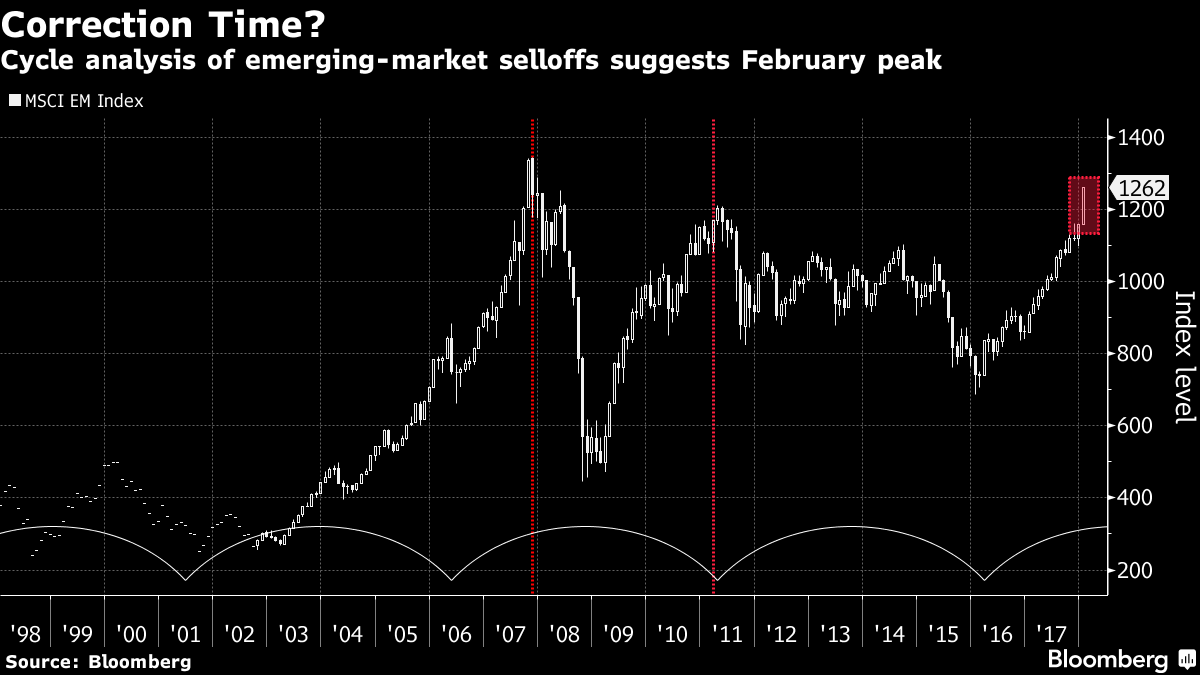The last time Jordi Visser remembers so many fellow investors saying the exact same thing about emerging markets it was February 2016 and stocks and bonds were mired in a multi-year slump.
Since then, the bulls took over: Those assets climbed 78 percent and 19 percent respectively in the past two years. Now, Visser says, euphoria has run to the point where markets are poised for a sudden, sharp drop -- even though emerging-market stocks, in particular, remain attractive over the long haul.
"Today is the polar opposite," said Visser, chief investment officer at the $1.3 billion hedge fund Weiss Multi-Strategy Advisers. "Then, everybody was worried about too many things. Today, people don’t seem worried about anything."
Visser is hardly the first to sound the alarm. Jeff Gundlach, chief investment officer at Los Angeles-based DoubleLine Capital LP, said developing-nation stocks probably face a temporary setback and Goldman Sachs Group Inc. has warned that records for global equities -- the MSCI Emerging Market Index is on its longest-ever streak without a 10 percent decline -- imply a greater risk for a retreat. The index gained for an 11th straight day today, hovering at the highest in a decade.

"The trigger point really has more to do with the lack of volatility we’ve had for a significant amount of time," Visser said. "People think it’s very easy to make money right now."
Like Gundlach and Goldman, he said a short correction, defined as a 10 percent swoon, doesn’t diminish an attractive backdrop for emerging markets.
"We’re very likely to have a significant correction, if for no other reason to cleanse the market," he said. "But I think it will rally back extremely quickly."
Developing nations have hit a "transition point," leaving behind the industrial revolution for the digital age, Visser said. Technology companies now make up a greater weighting of the MSCI EM Index (29 percent) than the S&P 500’s 25 percent. In three years, Visser expects the market value of Chinese firms -- he particularly likes Internet companies -- to surpass the U.S. to become the world’s largest.
Ironically, U.S. President Donald Trump will probably speed that transition for emerging markets as his protectionist moves force nations from Brazil to Saudi Arabia to tackle difficult economic overhauls to reduce their dependence on industrial companies, he said. Visser also said concern about the potential dissolution of the North American Free Trade Agreement has made Mexico’s peso "very undervalued." He’s betting the currency and Mexico’s stocks will reverse recent losses.








